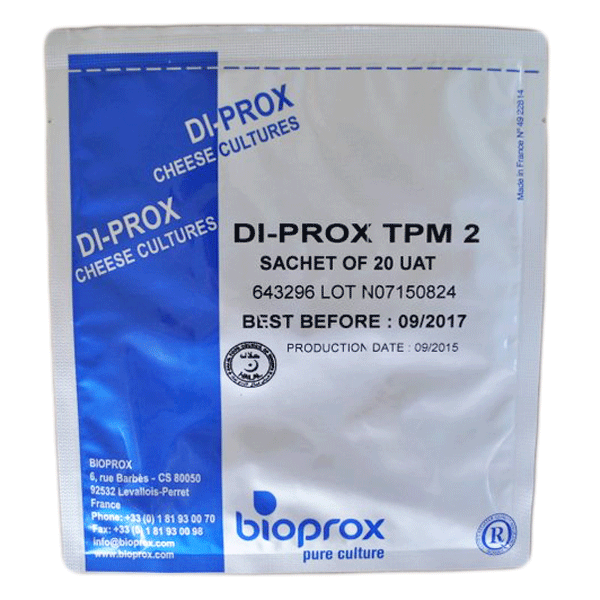Dosage and pack size
- Large size (20UA in foil sachet) will inoculate 600 to 2,000 litres of milk depending on dosage used
- Small size (5UA screw cap bottle which is 1/4 of a large pack) will inoculate 150 to 500 litres of milk depending on dosage used
- An approximate guide for usage is 1 Dash mini spoon or 1/8th spoon to 8 litres of milk
Types of Cheese TPM can be used on
Camembert, Brie, Triple Cream, Caciocavallo, Scarmorze
Description
TPM is a mix of the following thermophilic cultures: Streptococcus thermophilus
TPM contains a mixture of Streptococcus thermophilus, but they are a different Streptococcus thermophilus to those of the same name found in TPF and TPC cultures. All Streptococcus thermophilus are rapid acidifiers initially, but the cultures in TPM will slow down its acid production dramatically or even stops once a lactic acid level of just below pH 5.0 is reached. Once you reach this pH level you start to get a chalky core in the centre of the cheese. A chalky core is a good characteristic in a white mould cheese, but you do not want chalkiness with excessive acidity. Over acidification can lead to excessive ripening under the surface of the cheese (slip skin) and the rapid development of flavour which leads to an excessive unpleasant flavour plus also ammonia and bitter flavours. TPM helps minimise accidental over acidification during the curds in the whey, hooping and draining overnight (post hooping acidification) stages. TPM can be used as a sole starter culture for the manufacture of white mould cheese, but it is best used in conjunction with a mesophilic culture such as M235, M272 or Flora Danica. A ratio of 50:50 of M235:TPM is a good mixture. But a level of 70:30 of M235:TPM is also good. But any ratio can be used to suit your preferences.
If using a mixture of TPM and M235 a temperature that suits mesophile and thermophile growth eg 35°C – 37°C should be used.
- Flavour profile: 2 out 5
- Acid production: 4 out 5
- Resistance to bacteriophage: 4 out 5

